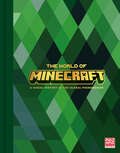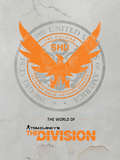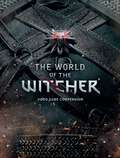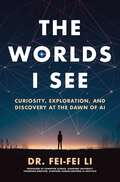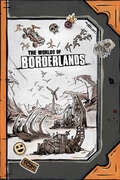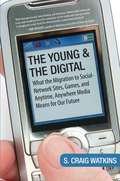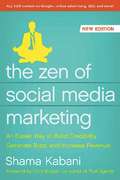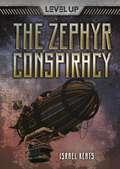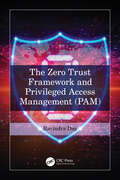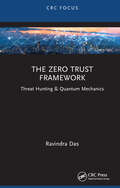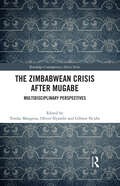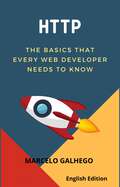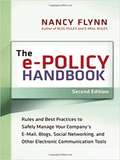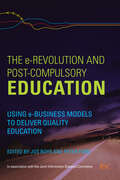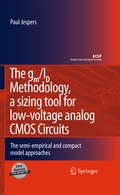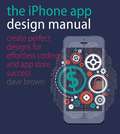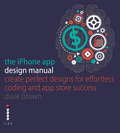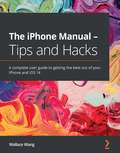- Table View
- List View
The World of Minecraft (Minecraft)
by Mojang ABUncover the history of one of the most influential games of all time in The World of Minecraft. Explore how the critically acclaimed game evolved from a one-person project in 2009 to the global gaming phenomenon it is today. The World of Minecraft is the definitive account of the game&’s history, combining exclusive interviews from the Mojang studio and recollections from long-standing members of the gaming community. Read the stories behind mods like Feed The Beast, the growth of community-defining servers like Hypixel, and YouTube channels like The Yogscast, plus a personal account from Lydia Winters on the creation of Alex, the impact of Minecraft charity Block by Block, the origin of the phantom, and many more insights.This must-have collector&’s item includes a foreword from chief creative officer Jens &“Jeb&” Bergensten and an afterword from vanilla Minecraft game director Agnes Larsson, plus original concept art, beautifully detailed renders, and previously unseen archive materials that illustrate how the game has developed over its first fifteen years. Journey back into past eras of the game and look to the future in this comprehensive chronicle of Minecraft&’s story.
The World of MrBeast: The Ultimate Unofficial Fan Guide Packed with Facts, Stats and Quizzes (The World Of #1)
by Catherine Saunders*THE ULTIMATE UNOFFICIAL MRBEAST FAN BOOK*Discover everything there is to know about MrBeast, the biggest YouTuber the world has ever known. Follow his journey from the early days of posting gaming videos from his bedroom, to becoming the viral, worldwide sensation that he is today. Whether he's building his very own Willy Wonka's Chocolate Factory and covering people in slime, or donating millions in aid to refugees, uncover the secrets behind MrBeast's most sensational giveaways, spectacular stunts, million-dollar challenges and the inspirational videos that are helping people around the world. Put your knowledge to the test with quick quizzes, impress your friends with the most amazing quotes, and discover record-breaking stellar stats that prove that Mr Beast is the internet's biggest star!*This book has not been authorised, licensed or endorsed by MrBeast or any associated entity, nor by anyone involved in the creation or production of the MrBeast YouTube channel.Buy this book if you're looking for:- gifts for boys and girls aged 8, 9, 10, 11- a book to get kids more interested in reading- a kid-favourite gift for birthdays, holidays or Christmas or summer holidays- a book that will inspire the biggest MrBeast and YouTuber fans in your life
The World of Tom Clancy's The Division
by UbisoftIncisive lore and detailed art in a cunningly designed hardcover that will bring readers into the ravaged streets of New York City and Washington DC as seen in Ubisoft's record-breaking videogame series!On Black Friday, a deadly biological attack was thrust upon the populace of New York. Within weeks, millions lay dead, and the city was placed under quarantine. The only force with any hope of restoring order are the embedded agents of the SHD--more commonly known as the Division. Despite the quarantine, the infection continues to spread across the country. Amidst a ruined government, a shattered infrastructure, and an eroding civilization, the Division is now called to action in Washington DC--but if the agents fail, the capital will fall, and the nation with it.The World of Tom Clancy's The Division is the meticulously crafted result of a partnership between Dark Horse books and Ubisoft Entertainment, offering readers a unique insight into the chaotic and dangerous world of the hit games. Don't miss this opportunity to learn all there is to know about the tactical methods, the high-tech tools, and the all-important mission of the Division!
The World of the Witcher: Video Game Compendium
by CD Projekt RedDive deep into the world of monster hunters, as the prominent characters from the universe take you on a guided tour of the fascinating dark fantasy adventure that is The Witcher. This gorgeous, illustrated hardbound volume contains in-depth knowledge about the locales, the deadly beasts that inhabit them, and the lethal weapons used to put them down.
The Worlds I See: Curiosity, Exploration, and Discovery at the Dawn of AI
by Dr. Fei-Fei LiONE OF BARACK OBAMA'S RECOMMENDED BOOKS ON AI * FINANCIAL TIMES BEST BOOKS OF 2023From Dr. Fei-Fei Li, one of TIME's 100 MOST INFLUENTIAL in AI, comes "a powerful plea for keeping humanity at the centre of our latest technological transformation" (Financial Times).Wired called Dr. Fei-Fei Li “one of a tiny group of scientists—a group perhaps small enough to fit around a kitchen table—who are responsible for AI’s recent remarkable advances.”Known to the world as the creator of ImageNet, a key catalyst of modern artificial intelligence, Dr. Li has spent more than two decades at the forefront of the field. But her career in science was improbable from the start. As immigrants, her family faced a difficult transition from China’s middle class to American poverty. And their lives were made all the harder as they struggled to care for her ailing mother, who was working tirelessly to help them all gain a foothold in their new land.Fei-Fei’s adolescent knack for physics endured, however, and positioned her to make a crucial contribution to the breakthrough we now call AI, placing her at the center of a global transformation. Over the last decades, her work has brought her face-to-face with the extraordinary possibilities—and the extraordinary dangers—of the technology she loves.The Worlds I See is a story of science in the first person, documenting one of the century’s defining moments from the inside. It provides a riveting story of a scientist at work and a thrillingly clear explanation of what artificial intelligence actually is—and how it came to be. Emotionally raw and intellectually uncompromising, this book is a testament not only to the passion required for even the most technical scholarship but also to the curiosity forever at its heart.
The Worlds of Borderlands
by Rick BarbaExplore a universe run amok with savage beasts, bloodthirsty bandits, and the biggest bad of all—corporations, in this full-color hardcover encyclopedia of Gearbox&’s beloved videogame franchise!The universe of Borderlands is an inhospitable wilderness that spans every biome conceivable. It&’s also a land full of opportunity, but only if you have wits, skill, and guns. Lots of guns. Many come to Pandora in search of the Vault in the hopes of finding wealth, fame, or power. This is the definitive guide to the bold people who live there and in the surrounding galaxy, the mercenaries, monsters, and wilds they contend with, and the ridiculous arsenal they employ.Dark Horse Books and Gearbox present The Worlds of Borderlands—a bombastic guide to Pandora, its surrounding planets and the characters who live there. This volume is filled with art and trivia relating to the guns, vehicles, ships, companies, and adventurers of the worlds-spanning universe—and the monstrous fauna who would eat all of them.
The Year was 2021: A review of the news, culture and cancellations that made people laugh, cry and very, very cross
by James FeltonA hilarious review of the rollercoaster ride that was 2021 from Twitter legend and bestselling author of 52 TIMES BRITAIN WAS A BELLEND, covering the good, the bad and the downright bonkers news and culture stories from the year.You might have forgotten (or wanted to forget) the storming of the Capitol, the Meghan and Harry interview with Oprah, Dominic Cummings turning on his former master and *that* bum squeeze by Matt Hancock - but James Felton is here to remind listeners of all of that and more using his usual razor-sharp wit and gleeful disdain. Whether you're after some painfully funny company on your commute, or want to chuckle/become enraged on the way to visiting loved ones over the festive period, THE YEAR WAS 2021 reminds us all just how ridiculous the last 12 months have been - and prepares us for the onslaught of 2022...
The YouTube Formula: How Anyone Can Unlock the Algorithm to Drive Views, Build an Audience, and Grow Revenue
by Derral EvesLearn the secrets to getting dramatic results on YouTube Derral Eves has generated over 60 billion views on YouTube and helped 24 channels grow to one million subscribers from zero. In The YouTube Formula: How Anyone Can Unlock the Algorithm to Drive Views, Build an Audience, and Grow Revenue, the owner of the largest YouTube how-to channel provides the secrets to getting the results that every YouTube creator and strategist wants. Eves will reveal what readers can't get anywhere else: the inner workings of the YouTube algorithm that's responsible for determining success on the platform, and how creators can use it to their advantage. Full of actionable advice and concrete strategies, this book teaches readers how to: Launch a channel Create life-changing content Drive rapid view and subscriber growth Build a brand and increase engagement Improve searchability Monetize content and audience Replete with case studies and information from successful YouTube creators, The YouTube Formula is perfect for any creator, entrepreneur, social media strategist, and brand manager who hopes to see real commercial results from their work on the platform.
The Young and the Digital: Why the Migration to Social-network Sites, Games, and Anytime, Anywhere Media Means for Our Future
by S. Craig WatkinsS. Craig Watkins skillfully draws from more than 500 surveys and 350 in-depth interviews with young people, parents, and educators to understand how a digital lifestyle is affecting the ways youth learn, play, bond, and communicate. Timely and deeply relevant, the book covers the influence of MySpace and Facebook, the growing appetite for anytime, anywhere media and fast entertainment, how online digital gates reinforce race and class divisions, and how technology is transforming America's classrooms. Watkins also debunks popular myths surrounding cyberpredators, Internet addiction, and social isolation. The result is a fascinating portrait, both celebratory and wary, about the coming of age of the first fully wired generation.
The Zen of Social Media Marketing
by Shama KabaniThe Ultimate Primer and How-To Guide for Social Media MarketingIn the two years since the first edition became a global bestseller, the world of social media has grown and changed enough to require an updated guide.Whether you use social media now or not, people are already talking about your company online. By becoming part of the conversation in a more meaningful way, you can start connecting directly to your customers and clients and finding new ones right away with ease and efficiency.Social media marketing isn't like traditional marketing--and treating it that way only leads to frustration and failure. In The Zen of Social Media Marketing, Shama Kabani, social media expert and president of The Marketing Zen Group (MarketingZen.com), teaches you the "Zen" of using social media tools to find your own marketing nirvana.With a foreword by New York Times bestselling author Chris Brogan and updated content on Google+, online advertising, SEO, and more, the newest edition of The Zen of Social Media Marketing gives you:* A comprehensive overview of why social media works and how to use it to drive traffic to your website and fan page* A proven process to attract followers and fans and convert them into customers and clients* The latest updates and step-by-step guidelines for Facebook, Twitter, LinkedIn, Google+, and group-buying sites such as Groupon and LivingSocial* Tips on why, when, and how to use online advertising* Essential advice on content marketing and targeted tactics to enhance your SEO* New information on why self-expression is the true driver of social media use and how to leverage it for your business* Insights from dozens of leading online marketers and entrepreneurs, with strategies for success
The Zephyr Conspiracy (Level Up)
by Israel KeatsIn a virtual reality treasure hunt game, a gamer named Gadget is a steampunk pirate looking for her captain's lost treasure—a mysterious mechanical device. If she can find the scattered pieces that make up the device, she'll be released from the game. But the further she gets into it, the more Gadget worries she's in over her head. In a game where it's hard to know who's a real person and who's a non-player character, can Gadget trust anyone?
The Zero Trust Framework and Privileged Access Management (PAM)
by Ravindra DasThis book is about the Zero Trust Framework. Essentially, this is a methodology where the IT/Network Infrastructure of a business is segmented into smaller islands, each having its own lines of defense. This is primarily achieved through the use of Multifactor Authentication (MFA), where at least three more authentication layers are used, preferably being different from one another.Another key aspect of the Zero Trust Framework is known as Privileged Access Management (PAM). This is an area of Cybersecurity where the protection of superuser accounts, rights, and privileges must be protected at all costs from Cyberattackers. In this regard, this is where the Zero Trust Framework and PAM intertwine, especially in a Cloud-based platform, such as Microsoft Azure.However, as it has been reviewed in one of our previous books, the use of passwords is now becoming a nemesis, not only for individuals but for businesses as well. It is hoped that by combining the Zero Trust Framework with PAM, password use can be eradicated altogether, thus giving rise to a passwordless society.
The Zero Trust Framework: Threat Hunting & Quantum Mechanics
by Ravindra DasThe Cybersecurity landscape is a daunting one today. It is nothing like it was 10 years ago. Now, it has become very complex, covert, dynamic, and stealthy. It has literally become a cat and mouse game, in which the Cyberattacker is still one step ahead. This is despite all of the technology that is available to us a society, which includes Artificial Intelligence (AI) and Machine Learning. Part of the other problem is that human beings are resistant to change. For example, the password is still the favored way of authenticating and authorizing an individual, but it too has shown its grave limitations. Despite the use of Password Managers, which can create long and complex passwords, people still resort to their old fashioned ways of doing things. So what is needed now is an extreme change, in which, unfortunately, people have no choice in whether or not they will participate. It is called the Zero Trust Framework, and in this methodology, absolutely nobody can be trusted in either the internal or the external environments. The mantra here is to keep verifying everybody, all the time. The Zero Trust Framework also involves the concept of segmentation, in which the IT and Network Infrastructure of a business is broken down into smaller components, much like a Subnet. Each component will have its own layer of security, and every individual must be authenticated via the use of Multifactor Authentication (MFA). In this book, we review both the concepts and mechanics behind the Zero Trust Framework. We also introduce advanced technologies into it, including the use of Biometrics, the Public Key Infrastructure, and Quantum Mechanics/Quantum Cryptography.
The Zimbabwean Crisis after Mugabe: Multidisciplinary Perspectives (Routledge Contemporary Africa)
by Tendai MangenaThis book examines the ways in which political discourses of crisis and ‘newness’ are (re)produced, circulated, naturalised, received and contested in Post-Mugabe Zimbabwe. Going beyond the ordinariness of conventional political, human and social science methods, the book offers new and engaging multi-disciplinary approaches that treat discourse and language as important sites to encounter the politics of contested representations of the Zimbabwean crisis in the wake of the 2017 coup. The book centres discourse on new approaches to contestations around the discursive framing of various aspects of the socio-economic and political crisis related to significant political changes in Zimbabwe post-2017. Contributors in this volume, most of whom experienced the complex transition first-hand, examine some of the ways in which language functions as a socio-cultural and political mechanism for creating imaginaries, circulating, defending and contesting conceptions, visions, perceptions and knowledges of the post-Mugabe turn in the Zimbabwean crisis and its management by the "New Dispensation". This book will be of interest to scholars of African studies, postcolonial studies, language/discourse studies, African politics and culture.
The basics that every web developer needs to know
by Marcelo GalhegoEvery journey has a beginning, and I believe that if you are looking to become a web developer but don't know how and where to start, this book can be your first step on this fantastic journey. I hope this book will help you reach your goals and make your dreams come true.
The e-Policy Handbook: Rules And Best Practices To Safely Manage Your Company's E-mail, Blogs, Social Networking, And Other Electronic Communication Tools
by Nancy FLYNNTrillions of e-mails travel each year through corporate networks—and they're not all work-related. But for organizations wishing to protect themselves from liability, e-mail is no longer the only danger—they now have to contend with blogs, social networking sites, and other new technologies. Packed with electronic rules, step-by-step guidelines, sample policies, and e-disaster stories, this revised edition of The e-Policy Handbook helps readers: implement strategic electronic rules • prevent security breaches and data theft • safeguard confidential company and customer information • manage new and emerging technologies • write and implement effective policies • train employees. Updated to cover new technologies, including instant messaging, social networking, text messaging, video sites, and more, this is a comprehensive resource for developing clear, complete e-policies.
The e-Revolution and Post-Compulsory Education: Using e-Business Models to Deliver Quality Education
by Peter Ford Jos BoysMoving debates about ICT and higher education beyond a simple focus on e-learning, this book takes into consideration the provision of post-secondary education as a whole.Discussing what is meant by e-business, why e-business approaches are relevant to universities and colleges and the key issues this raises for post-secondary education, this book:examines emerging technologies and provides examples of what an e-institution for education might look like explores what can be learnt from e-business in re-defining the relationships between enterprises and their users and in developing processes to improve services and competitive advantage considers how to improve administrative efficiency, implement faster access and response to information, enhance skills and knowledge development and improve the student experience examines technological innovation and integration, leadership styles, risk assessment and cost-benefit type analyses, re-designing existing organisational frameworks, techniques for overcoming barriers to change and successfully implementing change and the types of technologies required for an e-integrated educational provision In a highly competitive educational marketplace, institutions need to react to and embrace new technologies to provide rich and competitive learning environments for the students of tomorrow. The discussion and guidance in this book is essential reading for all leaders, managers and heads of e-learning in higher and further education.
The gm/ID Methodology, a sizing tool for low-voltage analog CMOS Circuits
by Paul JespersIC designers appraise currently MOS transistor geometries and currents to compromise objectives like gain-bandwidth, slew-rate, dynamic range, noise, non-linear distortion, etc. Making optimal choices is a difficult task. How to minimize for instance the power consumption of an operational amplifier without too much penalty regarding area while keeping the gain-bandwidth unaffected in the same time? Moderate inversion yields high gains, but the concomitant area increase adds parasitics that restrict bandwidth. Which methodology to use in order to come across the best compromise(s)? Is synthesis a mixture of design experience combined with cut and tries or is it a constrained multivariate optimization problem, or a mixture? Optimization algorithms are attractive from a system perspective of course, but what about low-voltage low-power circuits, requiring a more physical approach? The connections amid transistor physics and circuits are intricate and their interactions not always easy to describe in terms of existing software packages. The gm/ID synthesis methodology is adapted to CMOS analog circuits for the transconductance over drain current ratio combines most of the ingredients needed in order to determine transistors sizes and DC currents.
The iConnected Parent
by Barbara K. Hofer Abigail Sullivan Moore"Just let go!" That's what parents have been told to do when their kids go to college. But in our speed-dial culture, with BlackBerries and even Skype, parents and kids are now more than ever in constant contact. Today's iConnected parents say they are closer to their kids than their parents were to them--and this generation of families prefers it that way. Parents are their children's mentors, confidants, and friends--but is this good for the kids? Are parents really letting go--and does that matter?Dr. Barbara Hofer, a Middlebury College professor of psychology, and Abigail Sullivan Moore, a journalist who has reported on college and high school trends for the New York Times, answer these questions and more in their groundbreaking, compelling account of both the good and the bad of close communication in the college years and beyond. An essential assessment of the state of parent-child relationships in an age of instant communication, The iConnected Parent goes beyond sounding the alarm about the ways many young adults are failing to develop independence to describe the healthy, mutually fulfilling relationships that can emerge when families grow closer in our wired world.Communicating an average of thirteen times a week, parents and their college-age kids are having a hard time letting go. Hofer's research and Moore's extensive reporting reveal how this trend is shaping families, schools, and workplaces, and the challenge it poses for students with mental health and learning issues. Until recently, students handled college on their own, learning life's lessons and growing up in the process. Now, many students turn to their parents for instant answers to everyday questions. "My roommate's boyfriend is here all the time and I have no privacy! What should I do?" "Can you edit my paper tonight? It's due tomorrow." "What setting should I use to wash my jeans?" And Mom and Dad are not just the Google and Wikipedia for overcoming daily pitfalls; Hofer and Moore have discovered that some parents get involved in unprecedented ways, phoning professors and classmates, choosing their child's courses, and even crossing the lines set by university honor codes with the academic help they provide. Hofer and Moore offer practical advice, from the years before college through the years after graduation, on how parents can stay connected to their kids while giving them the space they need to become independent adults.Cell phones and laptops don't come with parenting instructions. The iConnected Parent is an invaluable guide for any parent with a child heading to or already on campus.
The iPad for Artists: How to Make Great Art with the Digital Tablet
by Dani JonesEnabling new and exisiting iPad users to develop and stretch their artistry in the digital age.
The iPad for Photographers: A Guide To Managing, Editing And Displaying Photographs Using Your Ipad
by Ben HarvellThink the little LCD on the back of your camera is useful? You haven't seen anything yet. This book will show you how to put photography's new essential piece of kit at the centre of your workflow, enabling you to bridge the gap between the camera and the internet by importing and uploading photos to the cloud, edit images on the road with the latest and most powerful apps, and organise and design your portfolio in a sleek and stylish package that will impress clients and present your work at its best. Novice or pro, the photographic uses of your iPad are endless, and this guide gives you everything you need to take full advantage of this powerful tool's capabilities. Fully updated for the latest apps, retina screen, iPad mini, and iOS 6. Catch up or get left behind - fluency with an iPad is now an industry standard. A must-read for iPad-owning digital photographers everywhere.
The iPhone App Design Manual
by Dave BrownApp creation is now a huge, global business, with hundreds of thousands of developers, entrepreneurs, and companies attracted by the potential rewards. But games, functional apps, and promotional apps alike depend on attractive, intuitive design for their appeal, and most fail to find a significant audience. With this book, you'll be able to turn your great app idea into a functioning design ready for coding, or apply graphic design skills to this exciting new field, and create an app that will stand out in a market that is worth over a billion dollars every year. Understand the design process that underlies the best and most successful apps Learn how to create a friendly interface and smooth user experience, and avoid the pitfalls that plague first-time designers Master the tricks of the trade that make apps stand out: effective visuals, punchy copy, and attractive colors
The iPhone App Design Manual: Create Perfect Designs for Effortless Coding and App Store Success
by Dave Brown Vicky RobertsThe creation of apps for Apple's iPhone is now a huge, and global business, with hundreds of thousands of developers, entrepreneurs and companies attracted by the potential rewards. But games, functional apps and promotional apps alike depend on attractive, intuitive design for their appeal, and most fail to find a significant audience.With this book, you'll be able to turn your great app idea into a functioning design that is ready for coding, or apply graphic design skills to this exciting and lucrative marketplace. You will have a clearly visualised concept and a focused sales plan - and your app will stand out in an App Store that is worth well over a billion pounds every year.
The iPhone Manual - Tips and Hacks: A complete user guide to getting the best out of your iPhone and iOS 14
by Wallace WangDiscover customization and productivity tips with this quick guide for iPhone usersKey FeaturesLearn everything about your iPhone quickly to use it as an effective tool for communication, entertainment, and workCustomize your phone's look and sound and modify the iOS's privacy settingsKeep your apps tidy and organized using the App LibraryBook DescriptionThe iPhone is the most popular smartphone available on the market, renowned for its sophisticated design, immersive UI, and user safety. And even if you've bought an iPhone for its impressive specifications, you may still be unaware of many of its features, which you'll discover with the help of this book!The iPhone Manual is your practical guide to uncovering the hidden potential of iPhones, and will leave you amazed at how productive you can be by learning tips and hacks for customizing your device as a communication, entertainment, and work tool. You'll unearth the complete range of iPhone features and customize it to streamline your day-to-day interaction with your device. This iPhone manual will help you explore your iPhone's impressive capabilities and fully understand all the features, functions, and settings that every iPhone owner should know. With this book, you'll get to grips with not only the basics of communication but also best practices for accessing photos, videos, and music to set up your entertainment using your iPhone. In addition to this, you'll learn about serious work tools that will make you productive in your everyday tasks.By the end of this iPhone book, you'll have learned how to use your iPhone to perform tasks and customize your experience in ways you probably didn't realize were possible.What you will learnUse touch gestures and understand the user interface to use any app on the iPhoneExplore the latest apps exclusive to iOS 14, such as the translate and magnifier appsFind out how to share data from your iPhone with other devicesSet up and customize Siri and learn how to give commandsDiscover different ways to capture and access pictures and videosSet up an email account and use multiple accounts on a single deviceSet up FaceTime on your iPhone and discover different ways to make a FaceTime callUse Apple Pay to shop online or send money to other usersWho this book is forThe book is for iPhone users who want to get more out of their state-of-the-art iPhone device and the powerful iOS interface. If you are new to using smartphones or are an Android user new to iPhones, this book will help you migrate efficiently.
The iPhone Photographer
by Michael FagansThe iPhone camera is a sophisticated device. It has compelled millions of people worldwide to take a new or renewed interest in photography. Let’s face it: most of us now have a tiny yet highly competent camera in a pocket or purse at all times these days, and we use it to grab shots of people, places, and things more and more often as the technology improves-and you know what? We’re largely pleased with those captures. If you’re a SERIOUS photographer, you may be wondering just how much mileage you can get out of your "simple,” ever-ready iPhone camera. Well, the answer may surprise you. In this book, Michael Fagans deconstructs photos taken in 60 scenarios-with a diverse array of subjects, in changing lighting conditions, in places that present unique challenges-showing you how to use solid, traditional photographic techniques to create great shots. Yes, Fagans will teach you the basics of creating a great photo. But there’s far more: He’ll show you that an iPhone, with the aid of apps, can mimic looks achieved by vintage cameras, a range of lenses, and countless filters. In this book, Fagans teaches you how to use free and low-cost apps and Instagram options to create (or, rather, re-create) beloved vintage-photo effects that you’d achieve with the Holga (a plastic vintage camera known for its unexpected lens distortion) and medium-format-camera looks. You’ll learn how to choose and use digital lenses, filters, and effects-and combine and re-combine them-to intensify color and contrast, de-saturate color, introduce lens aberrations, play with the grain and color cast in the image, and much, much more. What to emulate the look of vintage film stock to create a photo with an aged, time-worn feel? No problem. Want to introduce a little focusing inaccuracy for effect? Easily done. Want to do these things AND use traditional, professional artificial lighting sources (think a large softbox), a professional image-editing platform (Photoshop), and really refine your message while pulling out all the stops? Fagans shows you how. The deconstruction of the images in this book makes it worth the price of admission. Still, however, there is far more: Fagans is a photographer’s photographer. The book is peppered with inspiring quotes from Ansel Adams, Minor White, and countless other photographic visionaries that speak to the heart of photography.
